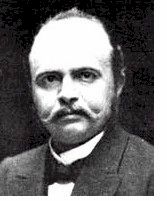Vitalism
(Redirected from Vitalistic)
Vitalism[edit | edit source]
Overview[edit | edit source]
Vitalism is a historical doctrine that posits the existence of a vital force unique to living organisms, driving the phenomena they exhibit. This force is thought to be distinct from purely mechanical or chemical forces. Vitalism suggests that the processes of life cannot be fully explained by the laws of physics and chemistry alone, implying that life is subject to its own set of principles.
Historical Context[edit | edit source]
Vitalism has its roots in ancient philosophies and medicine, with early proponents including Aristotle, who believed in a "vital heat" that differentiated living from non-living matter. Throughout the centuries, various forms of vitalism have been proposed, often as a reaction against materialistic explanations of life.
18th and 19th Centuries[edit | edit source]
During the 18th and 19th centuries, vitalism gained scientific credibility. Notable scientists such as Georg Ernst Stahl and Hans Driesch were advocates of vitalistic theories. Stahl introduced the concept of the anima as the immaterial force guiding the functions of the body, while Driesch's experiments with sea urchin embryos led him to propose the entelechy, a non-material force that directed organic development.
Decline and Criticism[edit | edit source]
The advent of biochemistry in the 20th century, exemplified by the synthesis of urea by Friedrich Wöhler and further discoveries in cellular and molecular biology, challenged vitalism by demonstrating that organic molecules and life processes could indeed be replicated in a laboratory setting. This empirical evidence led to a gradual decline in the acceptance of vitalism among scientists.
Vitalism in Modern Context[edit | edit source]
While vitalism as a scientific theory has largely been abandoned, the concept persists in various forms within alternative medicine, holistic health philosophies, and in discussions about the nature of consciousness and life itself. It serves as a philosophical standpoint for those who believe that living organisms possess qualities that cannot be fully explained by physical laws alone.
See Also[edit | edit source]
References[edit | edit source]
External Links[edit | edit source]
Search WikiMD
Ad.Tired of being Overweight? Try W8MD's physician weight loss program.
Semaglutide (Ozempic / Wegovy and Tirzepatide (Mounjaro / Zepbound) available.
Advertise on WikiMD
|
WikiMD's Wellness Encyclopedia |
| Let Food Be Thy Medicine Medicine Thy Food - Hippocrates |
Translate this page: - East Asian
中文,
日本,
한국어,
South Asian
हिन्दी,
தமிழ்,
తెలుగు,
Urdu,
ಕನ್ನಡ,
Southeast Asian
Indonesian,
Vietnamese,
Thai,
မြန်မာဘာသာ,
বাংলা
European
español,
Deutsch,
français,
Greek,
português do Brasil,
polski,
română,
русский,
Nederlands,
norsk,
svenska,
suomi,
Italian
Middle Eastern & African
عربى,
Turkish,
Persian,
Hebrew,
Afrikaans,
isiZulu,
Kiswahili,
Other
Bulgarian,
Hungarian,
Czech,
Swedish,
മലയാളം,
मराठी,
ਪੰਜਾਬੀ,
ગુજરાતી,
Portuguese,
Ukrainian
Medical Disclaimer: WikiMD is not a substitute for professional medical advice. The information on WikiMD is provided as an information resource only, may be incorrect, outdated or misleading, and is not to be used or relied on for any diagnostic or treatment purposes. Please consult your health care provider before making any healthcare decisions or for guidance about a specific medical condition. WikiMD expressly disclaims responsibility, and shall have no liability, for any damages, loss, injury, or liability whatsoever suffered as a result of your reliance on the information contained in this site. By visiting this site you agree to the foregoing terms and conditions, which may from time to time be changed or supplemented by WikiMD. If you do not agree to the foregoing terms and conditions, you should not enter or use this site. See full disclaimer.
Credits:Most images are courtesy of Wikimedia commons, and templates, categories Wikipedia, licensed under CC BY SA or similar.
Contributors: Kondreddy Naveen


